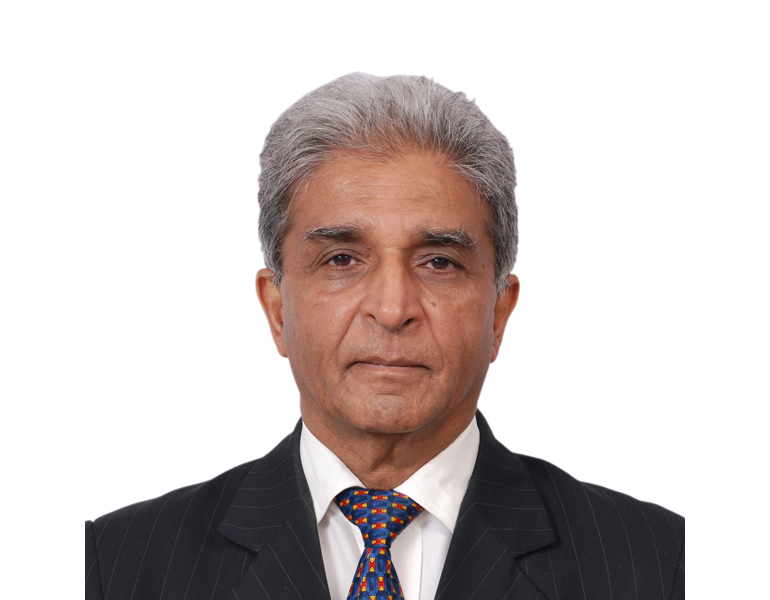
The Foundation was established by Mr. Naeem Sarfraz, a former Naval officer, retired ship owner, businessman and philanthropist.
He joined the Pakistan Navy in 1959, where he served for 15 years. During his naval career he held a variety of operational roles, including command of three warships and as Staff Officer to the Fleet Commander. He participated in both the 1965 and 1971 India-Pakistan wars. He is a graduate of the Royal Naval College Dartmouth and, as a cadet, was part of the Royal Navy’s aid to civil power operations in British Guyana. He specialized in Navigation and Tactics at the Royal Navy School of Navigation, HMS Dryad in the UK, and served on British Navy warships during training.
After resigning from the Navy in 1974 Mr. Naeem Sarfraz, as a Master Mariner, commanded merchant ships operating worldwide. Eventually, he set up his own ship owning and chartering business operating bulk carriers, tugs and barges out of offices in New York, Piraeus, London and Islamabad and with agents in over 50 ports worldwide, which he ran for 16 years. He returned home to Pakistan in the early 1990’s.
Mr. Naeem Sarfraz has written extensively in national newspapers and spoken at numerous international conferences on security issues, as well as issues related to human rights and development and has been a Research Fellow at Dalhousie University in Halifax, Canada.
Mr. Naeem Sarfraz has chaired on a number of government task forces and committees over the past 20 years. As Chairman of the Task Force on the Maritime Industry he helped revamp the shipping industry, including successfully opening up the then moribund Gwadar port.
He is the driving force behind a major national initiative to utilize Pakistan’s inland waterways for transportation. He was Chairman and CEO of IWTDC, established under Pakistan's 11th Five Year Plan, which conducted a very successful research oriented Pilot Project to demonstrate that it is possible to establish safe navigable channels on the Indus, craft can be constructed on the river banks, cargo can be moved economically and aquatic tourism and waterfront development have a great potential. A recent Report of the World Bank has endorsed the findings of the pilot project and strongly recommended to the government to develop the inland water transport system.
Currently, he is Chairman of FPCCI's Standing Committee on Inland Water Transport, Flood & Water Management to promote the private sector's demand to reduce cost of doing business, permit investment and job creation and make exports competitive through opening up inland water transport, tourism and waterfront development to the private sector.
This 60+ years of successful and continuous hands on experience, starting January 1959, in virtually all aspects of national and international maritime activities, civilian and military, in war and peace, is unique in Pakistan's history.
